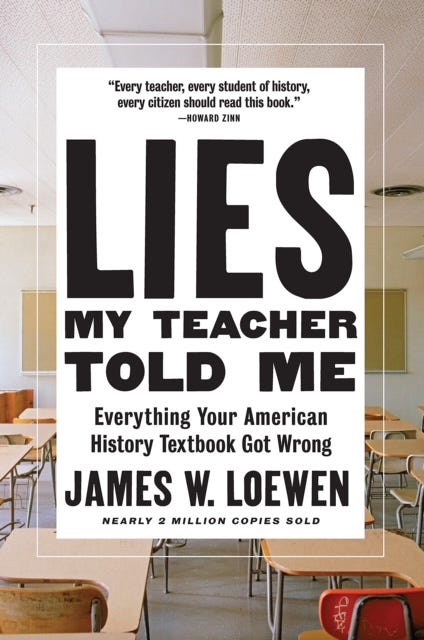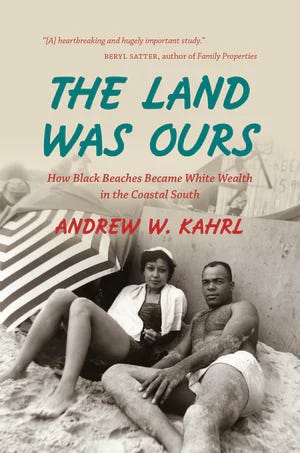Ashanti Martin, Writer, Activist, and “Where Is My Land” Co-Founder:
“The Number One Problem Facing America Today Is That We’re Not Avid Readers”
Ashanti Martin is unapologetic in her views about the Black experience in America. Exquisitely comfortable in who she is, who she’s not, who she hopes to become, Martin, a Philadelphia writer, activist, observer, and thinker offers a raw perspective on the importance of reading and becoming an informed citizen of the world.
It was an October 2020 piece in the New York Times Sunday Business section called “Black LinkedIn is Thriving. Is LinkedIn OK With That” that sent her reputation as a thought leader to stratospheric levels. On her own LinkedIn profile she shared some context on the article’s significance:
“The men in the banner image of the piece are my cousins -- Ronald Martin, Robert Patterson, and Mark Martin. It was the second day of the historic Greensboro, North Carolina, lunch counter protests in 1960. My cousins sat at Woolworth's counter under threat of verbal harassment and physical violence. Their strength, resilience, and rebellion empower me every day.”
To know Ashanti is to know a little about her history. Her first job out of college was as a beat reporter for the Hackensack, New Jersey “The Record” newspaper. She recounts a time where she covered local communities and government and later police and criminal justice. Says Martin:
“My assignments ranged from gangs and serial murders to trespassing animals like bears and woodpeckers.
She went on to hold several writing and communications roles in higher education -- at Rutgers University, the University of Pennsylvania, and the Wharton School. She worked in media relations, strategic communications, development, and alumni communications.
“I was the first communications director at the Rutgers University School of Communication and Information. That's where I also received a bachelor's degree in journalism and a master's degree in communication and media.”
Today, Martin is the co-founder of “Where Is My Land '' movement, an advocacy, research, and technology organization that raises awareness about land theft from Black Americans. The aim, she says, is to support Black families and descendants in their journeys to reclaim land through community organizing, policy advocacy, and coalition building.
Asked about what book has had the greatest influence on her thinking, Martin without hesitation responded “Lies My Teacher Told Me: Everything Your American History Textbook Got Wrong,” by James W. Loewen,
A regular contributor to the History Channel's History magazine and a professor emeritus of sociology at the University of Vermont. Martin was first introduced to the book right around the second election of President George W. Bush, a period she says truly radicalized her.
Martin admits to having always been revolutionary-minded in spirit. Single at the time with no kids and making decent, she recalls how a lot of extra income went toward books.
“I was on Amazon and Powell Books all the time just ordering stuff. One of the recommendations I received from one of the sites was People’s History of the United States by Howard Zinn. I thought, ‘I’ve got to get this book.’ So when I ordered that book I believe that when “Lies My Teacher Told Me” came as a recommendation too. I saw it and thought ‘that’s right up my alley.’”
Asked what captured her attention about the latter book, Martin had this to offer:
“I had always been skeptical of the educational system as well as a lot of my teachers and the history lessons they taught. On the other hand, I had always had an appreciation for my teachers who I felt kept it real.”
It is at this point in our interview discussion where Martin pauses for a moment to search her online Amazon records to determine exactly when she purchased the book.
“Ah ha, here it is,” she exclaims. “I ordered it on November 14th, 2004, right after the second Bush election. I was very anti-war and felt like we were being told lies about the Iraq War, lies that were later discredited. So that’s how I discovered this book.”
Martin recalls that she began reading it shortly thereafter:
“I just remember being absolutely shocked, but not surprised by a lot of the content. For example, this is where I read about Christopher Columbus and all the awful, truly brutal things that he and his crew did to the Native Americans. Like torture and chopping off limbs and beheadings. Truly disgusting things that have been reconfirmed as true over time.”
Because very few people had ever questioned the narrative told about Columbus back in 2004, reading the book, she says, felt like a complete betrayal on the part of the education system she matriculated through.
“It was truly sickening to discover how they hid this information, instead choosing to cast Columbus as this pioneering hero rather than telling the whole story.”
Having had kids, Martin now admits to always paying attention to how historical narratives like 9-1-1 are being taught in schools.
“I always try to be there to provide that ‘OK, but here’s what it was really like from my perspective,’ based on what I’ve researched and read.”
Martin says that while she had always been one to question things that were put in front of her after reading ‘Lies My Teacher Told Me” she felt very validated in being a questioner of everything.
Martin also cites “The Land Was Ours” which chronicles the story of African American–owned beaches in the twentieth century and how they eventually became a major source of white wealth in the coastal South as another book that influenced her thinking. She says it helped her understand why things are the way they are now which has been useful in the launch of her nonprofit.
“I feel like there are a lot of people who really want to do something during this time of major change and social justice. But I believe the best thing at times is to not do anything. Rather, it’s to learn about who you are versus rushing to try to do something right away.”
Martin admonishes those thirsting for involvement in a cause or movement to first to “first educate themselves before moving into action.”
“It seems like such a simple thing but people just don’t do it.”
Martin laments about the fact that a lot of activism these days is about posting on social media, being performative, and gaining activist clout. But often she tells folks, “I don’t care if you don’t do anything other than educate yourself and read.”
In a concluding thought, Martin shared this:
“I believe this is our number one problem in this country, the fact that we are just not great book readers. It’s the number one thing I believe our democracy faces right now, namely, a lack of literacy and curiosity on the part of the majority of Americans. People scroll on social media, capture some sound bites and then take it as truth, only to later learn that much of it is untrue. On the other hand, if you have read something in a book, particularly those that have stood the test of time and gone through several editions, you can generally assume that you are acquiring useful information that can help you evolve in your thinking.”






